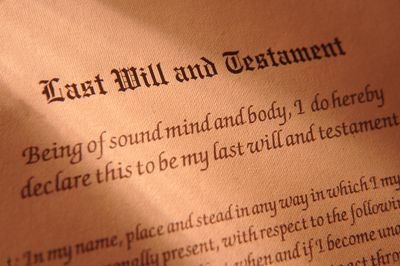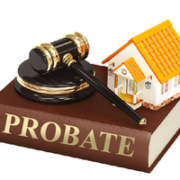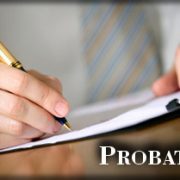How to Avoid the Big Bad Wolf of Probate Court
How do you ensure your family and loved ones are safe from the Big Bad Wolf of probate court? Whether you have a comprehensive family trust or are just getting started with a basic estate plan, understanding and avoiding probate is paramount for each person considering the future of their loved ones. Probate is the court-administered process of settling the estate of a loved one with or without a will. If you don’t have a basic will, or “last will and testament,” you may think there is no plan for your family. The reality is, the state court system would then have a plan for you. In addition, even if you have a plan using a basic will, your estate will still go through the probate court system. Therefore, it’s essential that you understand what probate is, and what your options are, in order to avoid it.
Why is Probate a Big Bad Wolf?
- Inefficient – Probate is extremely time-consuming and inefficient. The minimum time to administer a single asset through probate court is 6 months. This is because creditors have 6 months to attach their interest on an asset through probate. Moreover, the average time to administer an estate in the state of Ohio is about one year.
- Costly – Probate is expensive. According to the AARP, the many fees of probate (court, attorney, filing, etc.) add up to 5-10% of the value of your estate. For example, on the low (5%) end, if you have an estate with a house, retirement, and other assets totaling $500,000, your loved ones could lose at least $25,000 in probate costs.
- Public – Since probate proceedings are part of a government court system, the entire process is public. This means that anyone can go online and search the docket for every probate matter filed today. In less time than it takes you to read this article, someone could determine the value of assets in your estate, beneficiaries, executors, property listed, debt, and more. Once they have this information, your loved ones are vulnerable to scams and hassles from creditors and scam artists.
- No Asset Protection – The probate court serves two main functions. First, probate pays creditors all that is owed by the decedent. After debts are paid, the probate court administers its second function which is to pay beneficiaries an outright distribution of whatever is left. The court is impersonal, and cannot take into consideration important changes in relationships or financial challenges. Multiple factors including divorce, student loans, litigation, creditor issues, and/or spending issues can impact the distribution of your hard-earned money.
So, what can you do to avoid the above? Is having a basic will a good form of estate planning? Is there a better option? The reality is that a basic will is your one-way ticket to probate court. With the inefficiency, cost, publicity, and weaknesses of probate, the following options are vital to protecting your loved ones.
Joint Ownership
Joint ownership is the most common method of probate avoidance and does not require the help of an attorney or other professional. Assets owned by more than one person result in the survivor taking ownership. Joint ownership examples might include a joint bank account or joint marital home. This is significantly beneficial when avoiding probate for a residence because the transfer of assets is immediate and does not require a court-approved transfer. In lieu of a trust, the downside of joint ownership is that it does not offer asset protection. Creditors may still attach their interest in a residence or asset of a jointly held account after both parties have passed.
Beneficiary Designations
If you’ve ever purchased life insurance or engaged with a financial planner, you’ve probably filled out a beneficiary designation. These forms are very common with retirement accounts (such as a 401(k), 403(b), IRA, etc.), life insurance, annuities, and other assets. Beneficiary designations are a great way to avoid probate and keep your estate private. Once again, the downside to beneficiary designations is that your assets are not protected against divorce, creditors, or litigation. For example, if your children inherit an IRA, but then get divorced, the ex-spouse may receive half of the retirement assets depending on how those assets are managed during the marriage. A trust would keep the inheritance in a ‘bloodline’ relationship to your kids and grandkids.
Transfer-on-Death
A transfer-on-death affidavit, or “TOD,” works just like a beneficiary designation. Here the TOD allows you to designate the person or entity to receive your assets upon your death. Just like a beneficiary designation, the TOD avoids probate while transferring assets swiftly and without court approval. This method saves time and cost for commonly titled assets like a home, automobile, boat, and other assets which hold title.
Family Trusts
The single best way to avoid probate while also providing asset protection is by creating a family trust. A properly drafted family trust is completely private, avoids probate, provides asset protection, and has advantageous tax purposes. In addition to avoiding probate, if you are worried about a child getting divorced, concerned for a child with spending issues, or simply want to provide asset protection for your family, a family trust will accomplish all of the above.
Don’t Let the Big Bad Wolf Blow Your Plan Down!
This brief article makes obvious the importance of avoiding probate. But what other plans should you be concerned about? Is your estate plan made out of straw (a basic will), wood (beneficiary designations), or brick (family trust)? For more information, contact Dan A. Baron or Baron Law LLC by phone at 216-573-3723, or by emailing dan@baronlawcleveland.com.











